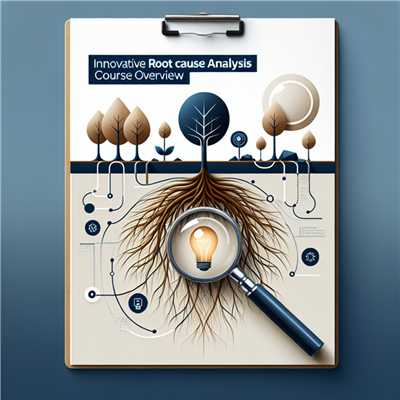
Oracle Java Certification is one of the most recognized and respected credentials for Java professionals. As companies continue to rely on Java for developing robust applications across various industries, demand for certified Java developers remains high. This article explores the career opportunities, salary expectations, and potential growth paths for professionals with Oracle Java certification, helping you understand the value of this credential in shaping a successful Java-focused career.
Why Oracle Java Certification Matters
Oracle Java Certification validates your proficiency in Java programming, confirming your skills and knowledge in one of the most popular programming languages. Oracle offers multiple Java certification paths, from foundational Associate-level exams to advanced Professional and Master certifications. Earning these certifications not only demonstrates technical competence but also shows a commitment to continuous learning, which employers highly value.
For anyone aiming to build a career in Java development or related fields, Oracle Java Certification provides a competitive edge in the job market, paving the way for more lucrative and challenging roles.
Job Roles for Oracle Java Certified Professionals
With Oracle Java Certification, you become eligible for a range of job roles that focus on Java development, as well as positions requiring a deep understanding of Java-based technologies. Here are some of the primary roles available:
-
Java Developer
- Role Overview: Java Developers are responsible for designing, implementing, and maintaining Java applications, often working on large-scale, enterprise-level projects.
- Skills Required: Core Java programming, frameworks like Spring and Hibernate, and knowledge of databases and APIs.
- Career Path: Many entry-level Java Developers move on to specialized roles or advance to Senior Java Developer positions, where they take on more complex projects and leadership responsibilities.
- Java Application Engineer
- Role Overview: Application Engineers focus on developing and maintaining Java-based applications and may work closely with teams involved in the design and architecture of software solutions.
- Skills Required: Knowledge of object-oriented programming, application architecture, software testing, and debugging.
- Career Path: This role can lead to senior positions in software engineering or system architecture roles, with the potential to manage entire application stacks.
- Role Overview: Java Web Developers specialize in building web-based applications using Java frameworks like Spring, Struts, or JSF (JavaServer Faces).
- Skills Required: Proficiency in Java, front-end technologies (HTML, CSS, JavaScript), and frameworks like Spring MVC.
- Career Path: From web development, professionals can advance to full-stack roles, lead development teams, or transition to software engineering management.
- Role Overview: Software Engineers work on the development, testing, and maintenance of software applications, often requiring proficiency in multiple programming languages, including Java.
- Skills Required: Multilingual programming knowledge, debugging, testing, and knowledge of software development methodologies.
- Career Path: Software Engineers often move into specialized development roles, system architecture, or technical project management.
- Role Overview: Backend Developers focus on server-side development, handling database interactions, APIs, and server logic to support web and mobile applications.
- Skills Required: Core Java, server-side frameworks, database management, and API integration.
- Career Path: With experience, Backend Developers can progress to lead backend developer positions, solutions architect, or senior engineer roles focused on system infrastructure.
- Role Overview: Android Developers use Java to create mobile applications for the Android platform, focusing on application performance, user experience, and responsive design.
- Skills Required: Java, Android SDK, mobile app lifecycle, and proficiency in XML for UI development.
- Career Path: Android Developers can advance to senior development roles, specializing in mobile UX design, or lead entire mobile development teams.
- Role Overview: Systems Architects design and oversee the architecture of software systems, ensuring that the Java-based applications are scalable, efficient, and aligned with business objectives.
- Skills Required: Advanced Java, system design, cloud technology, and knowledge of design patterns.
- Career Path: Many Java Architects advance to principal architect roles or senior positions in technical leadership, overseeing larger teams or multiple projects.
- Java Web Developer
- Software Engineer/Software Developer
- Backend Developer
- Android Developer
- Java Systems Architect
Salary Expectations for Oracle Java Certified Professionals
Oracle Java Certification enhances earning potential, and certified professionals often receive higher salaries than their non-certified peers. Here’s an overview of typical salary ranges for Oracle Java Certified professionals:
-
Entry-Level Java Developer
- Salary Range: $55,000 - $75,000 per year
- Certification Impact: An Oracle Java Associate certification can boost entry-level salaries, helping new professionals negotiate higher starting pay.
- Mid-Level Java Developer (3-5 Years Experience)
- Salary Range: $80,000 - $100,000 per year
- Certification Impact: Certified mid-level developers can expect salaries on the higher end of the range, as employers seek validated expertise.
- Salary Range: $100,000 - $130,000 per year
- Certification Impact: At the senior level, Oracle Java certification may justify higher compensation, particularly for developers with certifications in advanced or specialized Java technologies.
- Salary Range: $130,000 - $160,000 per year
- Certification Impact: As architects, professionals with advanced certifications can negotiate salaries at the top of the range, especially when combined with experience in cloud and microservices.
- Salary Range: $85,000 - $110,000 per year
- Certification Impact: An Oracle Java certification can strengthen an Android Developer’s credentials, especially for roles involving extensive Java code integration.
- Salary Range: $90,000 - $115,000 per year
- Certification Impact: Certification can bolster a Software Engineer’s profile, leading to higher salaries and access to premium projects in enterprise environments.
- Salary Range: $90,000 - $120,000 per year
- Certification Impact: Certification in Java adds credibility to Backend Developers’ skills, often resulting in a higher pay bracket.
- Senior Java Developer
- Java Systems Architect
- Android Developer
- Software Engineer
- Java Backend Developer
These salary ranges vary depending on location, industry, and company size. However, Java certification consistently provides leverage for better compensation.
Career Growth Opportunities with Oracle Java Certification
Oracle Java Certification is often a stepping stone for career advancement, with the potential for rapid growth in various tech roles:
- Skill Specialization: Certified professionals are positioned to specialize in areas like cloud computing, DevOps, or full-stack development, enhancing their career versatility.
- Team Leadership: Many certified professionals advance to lead developer or team lead roles, where they oversee project implementation and mentor junior developers.
- Higher-Level Certifications: Professionals with foundational Java certifications can pursue advanced certifications (such as Oracle Certified Professional) or certifications in related areas (like Oracle Database) to enhance their profiles.
- Transition to Architecture: Java Developers with significant experience and certification often progress to Java Architect or Solution Architect roles, where they design software systems.
- Consulting and Contracting: Certification can also open doors to consulting roles or freelance opportunities, allowing professionals to offer Java expertise across multiple industries.
Conclusion
Oracle Java Certification is an invaluable asset for anyone looking to build or advance a career in Java development or related fields. This certification is widely recognized as proof of technical proficiency, opening up a range of high-paying, fulfilling roles across industries. From entry-level development positions to senior architect roles, Oracle Java Certified professionals enjoy competitive salaries, career flexibility, and ample growth opportunities.
In a rapidly evolving tech industry, staying competitive is essential. By obtaining an Oracle Java Certification, you not only validate your current skills but also position yourself for future success in the ever-expanding field of Java development.
With the increasing demand for Java professionals, an Oracle Java Certification can significantly boost your career prospects. Whether you prefer Oracle Java online training or traditional Oracle Java classes, Koenig Solutions, a leading IT training company, offers comprehensive and flexible training options to help you succeed in your career.
So, don't wait! Enroll in the Oracle Java training today and take a step towards a successful IT career.







COMMENT